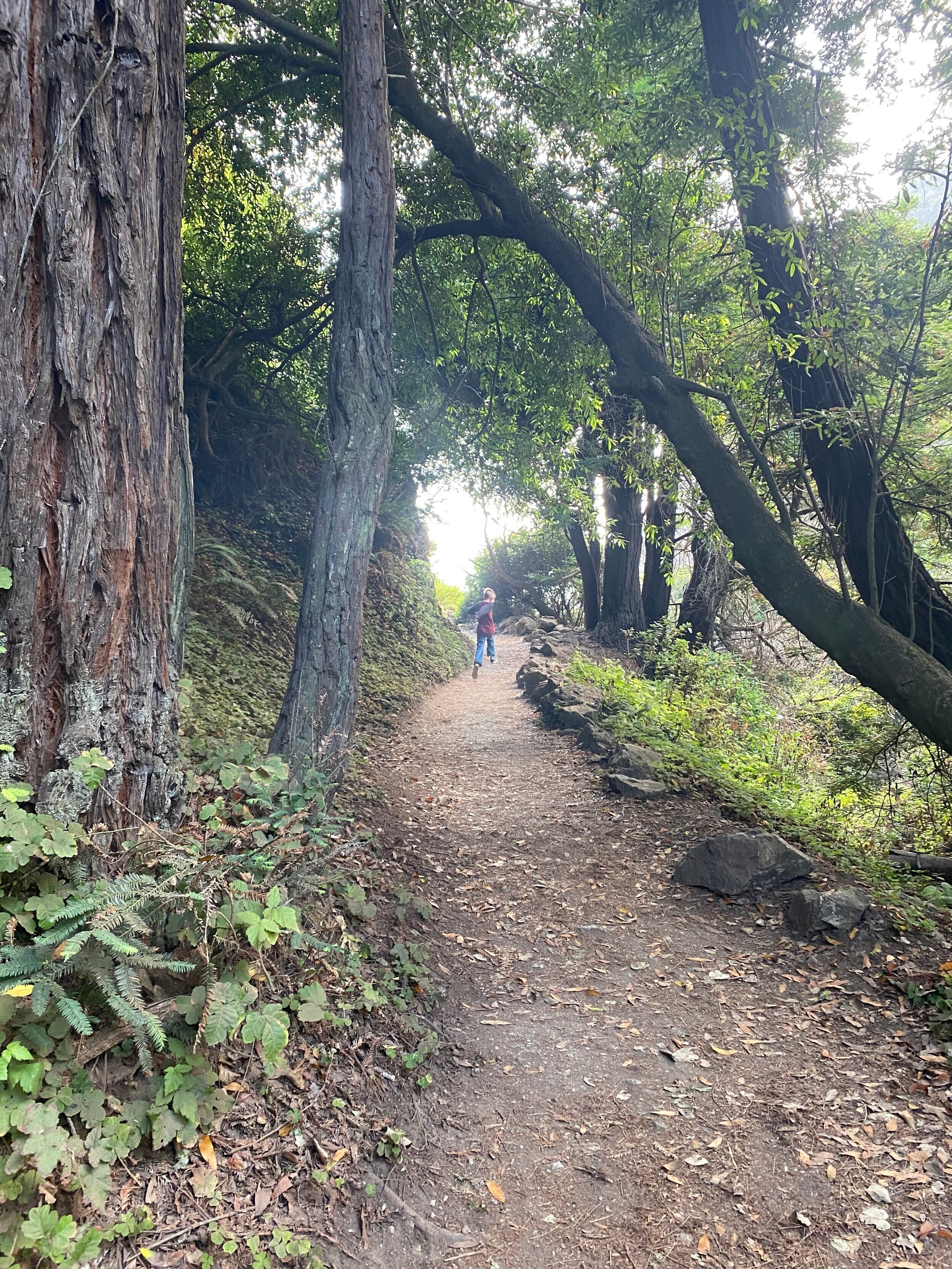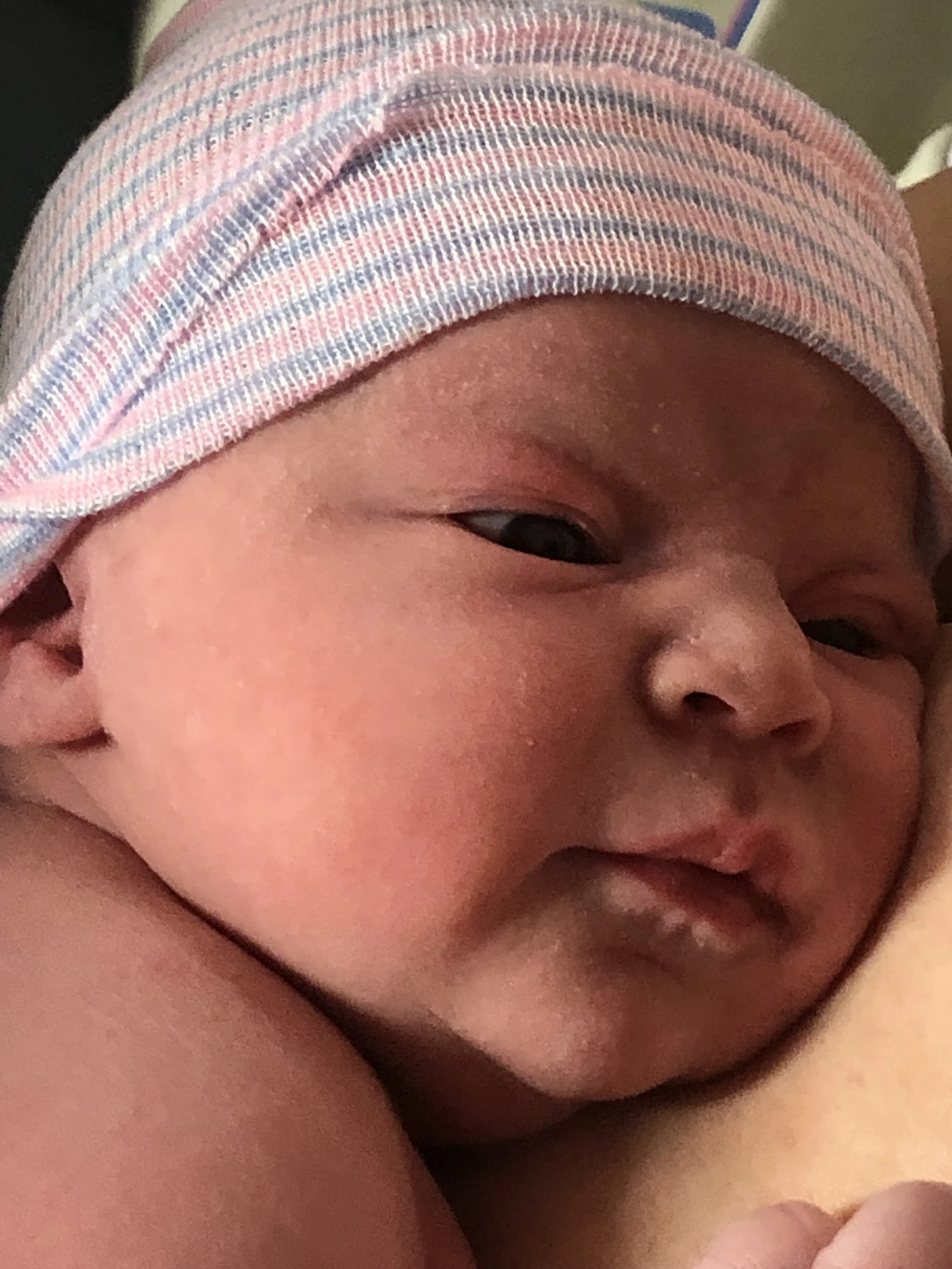Trigger warning: grief and loss, neonatal loss, twin loss
I wondered, in the beginning, what happens to the grief.
I had started having a lot of vivid dreams about William earlier this year, and I knew it was time to revisit the cove where we let his ashes go almost 10 years ago.
Elliott!
William, my son who passed away at 6 days old (10 years ago Bastille Day), seemed to be calling me. I had dreams where I was surrounded by him, his light. He was a blue light, and the dreams were comforting because I needed to sense him. They brought this stark reminder of his absence, and this time, they also reminded me I had something I needed to do.
His twin, Elliott, hit double digits this year and continues to baffle me frequently with his intelligence, resilience, and heart. He is brave, and strong enough to climb boulders and mountains, has ideas about games and programs to design, reads books and writes stories. He loves his little sister and sleeps amongst all of the household pets, whom are drawn to his gentle nature and sense his kindness (the beasts actually battle over the spots closest to him in bed, cats vs. dogs being the most common matchup). He is curious and information-seeking; for example, this year he informed me that owls have long legs and (I couldn’t believe it without a google search) they do.
He is incredible. He saved my life.
When William died, I was flooded with grief. It felt impossible to imagine even an idea of the steps I could take to grasp onto something, anything, that would remediate the feeling that my heart was an open, bleeding, vulnerable wound that could never heal, not ever. In fact, the only thing that helped me to get out of bed at that time was the knowledge that I had to keep it together in some form in order to help Elliott through his battle for his life, as he faced the NICU and all of its pain. If I wasn’t there, if his father wasn’t there, he would have been alone, after spending months squished next to his brother through their gestation, their every gesture and heartbeat registering with each other even before I could feel their tiny movements.
Grief is strange. There are moments, sometimes even for more prolonged time now, where it seems ephemeral. When it surges up again more powerfully, I feel a sense of guilt for its prior absence. It tends to visit in visions of what it would be like if he was here: What would it be like if he was having his first day of 4th grade, how would he dress for Halloween, what would his temperament have been or what talents would he have had, what kind of song would he have performed in the piano recital, what sports would he have wanted to play. How would he and I have related, or he and his dad. How would he and Elliott have gotten along, what would he have thought of his little sister. Sometimes it comes at certain times of the year, unconsciously, and it only registers in my body like a heavy weight on my chest. When the grief visits, it inspires a deep ache in my heart and guts, at times memories of the torture it was to have to let him go, and holding him as he died, howling the deepest cry I’ve ever uttered as I felt it happen, then the doctors and nurses taking his body away down the hall, and finally, letting his ashes go into the ocean. When the grief visits, more often than not you sit with it alone.
Elliott and his dad.
And then it fades. And then I have to do things, and be functional and tend to the myriad responsibilities in my life. It seems to go in waves, in sets. But it seems as time passes, more frequently I find myself looking away and feeling terrible for it, the sets get further apart and smaller, but then another high tide will hit and there’s no choice but to sit and surrender as it swallows you again.
Greta!
The mythology we have around “closure”, “coming to terms”, “making meaning”, “finding peace” is so powerful, and one who is grieving often wonders if they will ever get that gift: the gift of feeling at peace with the loss of their child. That maybe one day they will be able to remember what it was like before time stopped and everything went sideways, when everything fell beneath a dark, haunting and uncertain shadow and we all at once forgot who we were before, because we couldn’t be that person any more. That person was gone, dead along with our child, and in her place was a person walking with an absence that nags and pulls us unpredictably back beneath the surface of the water, never free of the knowledge that a piece of our soul has been taken away, and unable at times to be present with joy. If it was linear, at least it could be predictable.
In July, we made the trek to William’s cove in Big Sur.
For those that have never been, Big Sur is along the northern California coast: a place that wasn’t particularly accessible to humans until 1937, when a precarious highway was constructed along its cliffs, spidering down its mystical coastline and hugging the mountains beside it, enabling humans to explore its magnificent surroundings and state parks. There is a lighthouse there whose primary purpose was (and still is) to ward off ships due to the treacherous nature of the coast’s tides, bluffs and rocks. There is no uncertainty when observing the ocean there, that it is powerful. I’ve heard that the big fish like to hang out in its waters. Big Sur is as spellbinding as it is dangerous. “Ethereal” is an understatement when considering Big Sur: it is holy.
It had been 10 years, and my brain had suppressed the memory of this sacred space, perhaps in an effort to keep the grief at bay. Immediately upon being there I recognized my need to have been there, a familiar need, just one I hadn’t been able to be conscious of for some time; and I felt gratitude for recognizing it again. Staring at the trees and cliffs and the ocean, hiking down to William’s cove, it was like I was in my own body again, it was like I was whole with who I was. It was like I was present again, because I was embracing my grief again, the very grief I had made some concerted efforts to ignore in an effort to be “functional”.
Once again I was human, humbled by the gravity of nature’s force, and in acknowledgement of my powerlessness in the face of it.
Home
When we arrived in the cove, I climbed onto a stone where a creek flows into the ocean, and suddenly sank into my body, recognizing a feeling I hadn’t had in ten years. A feeling that was both familiar and terrifying, comforting and unsettling, a story that I lived and live that took me back into its arms. I knew in that moment that I’d found myself atop the exact same stone I had crouched on that day a lifetime ago, as a huge piece of my heart went out into the sea and I had to observe, in complete surrender to it all, as William once again slipped away, and nature wrought her powerful force, and I in turn transformed into a person that I no longer recognized nor understood.
Witnessing my children, now, in this present moment, as they explored this space while I sobbed, letting out the air I had held in for a decade, I could recognize again that this is all it is: this very moment. And all one can do is sit in surrender and gratitude for it all, as painful (and beautiful and loving and vibrant and thick) and fleeting as it all is, in recognition that one is always in the water, surrounded by it all even if we sometimes don’t notice.
So grateful for this sacred place and to share it with my surviving children, and that she welcomed us home via heart memory and grief and that painful familiarity that is only ever a heartbeat away.

























